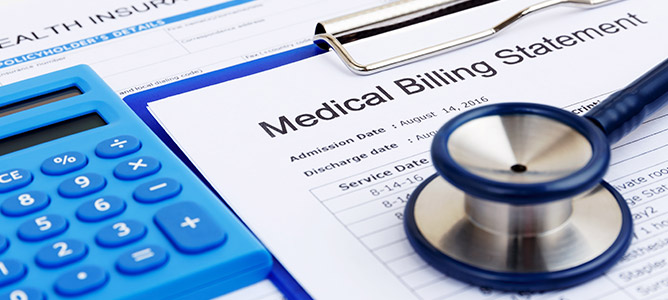Workers’ compensation coverage pays benefits to workers injured on the job, including medical care, lost wages, and permanent disability. Work-related injuries or illnesses have the potential to be devastating for both the employee and the employer, especially if it results in an extended absence.
According to the National Safety Council (NSC), work-related injury costs for employers in 2019 totaled $171 billion. $35.5 billion of these costs were directly associated with medical expenses.
Some of the most frequent questions that we receive from our clients involve billings including “Why is my employee receiving medical bills when they are injured on the job?” and “How do we get the bills paid?”
Here are some key recommendations that will help employees and their employers avoid additional pain resulting from workers’ compensation medical billings.
Train employees to report a work-related injury immediately
Often there is a limited amount of time allowed to file a workers’ compensation claim. The employer is responsible for filing the claim with the carrier, but the employee must provide documentation of the date, time, and circumstances of the injury.
Direct your employees to seek medical attention
Injured employees should seek medical attention relating to their injuries or illnesses as soon as possible. If injuries are not life-threatening, visit the Urgent Care/Walk-in/Occupational Health facilities that are in-network with your carrier, not the Emergency Room.
If Emergency Room treatment is required, prepare a document outlining the injury date, the workers’ compensation insurance carrier’s name, billing address, claim number and adjuster’s contact info that can be provided to the injured worker or to the employer representative who escorts the injured worker to the hospital. This information should be shared with each and every medical provider throughout the emergency room treatment.
Communicate responsibilities and provide key information
Educate and inform injured employees that they will more than likely receive medical billing statements at home and not to ignore or discard them. Especially for those injured employees who receive treatments in an emergency room, it is not uncommon to receive multiple billing statements. These separate statements are generated from the hospital, the attending doctors, and other departments as needed like Radiology and Laboratory to just name a couple.
In most cases, the injured employee incorrectly assumes that worker’s compensation automatically handles and covers these costs. If these bills are neglected and go unpaid, the injured employee will be turned over to collections.
Injured employees should do the following:
- Contact that medical provider and provide the following information:
- Work Comp Carrier:
- Date of injury:
- Billing address:
- Claim #:
- Adjuster’s name:
- Adjuster’s Phone #:
- Send the billing statement directly to their adjuster.
- Provide a copy of the billing statement to their employer so the employer can assist with contacting the medical providers. Or if a client of Sentinel Risk Advisors, employers can send the billing statement to me. I will then assist with contacting each provider and giving them the proper billing information.
Summary
Keep in mind, medical providers are billing the injured employees because they don’t know the responsible parties. Also, each department in a hospital is a separate entity which have their own billing departments and communication is limited.
Furthermore, carriers cannot process a medical bill based only on the billing statement that the injured worker receives. All medical services must be billed with International Classification of Diseases, 10th Edition (ICD-10) diagnosis and procedure codes and billed on a HCFA 1500 Form.
To help avoid this confusion and increase the efficiency of medical payments, arm your employees and the various medical providers with the appropriate workers’ compensation information. For the highest success, engage with Sentinel Risk Advisors to mitigate your losses and control your claims costs.



